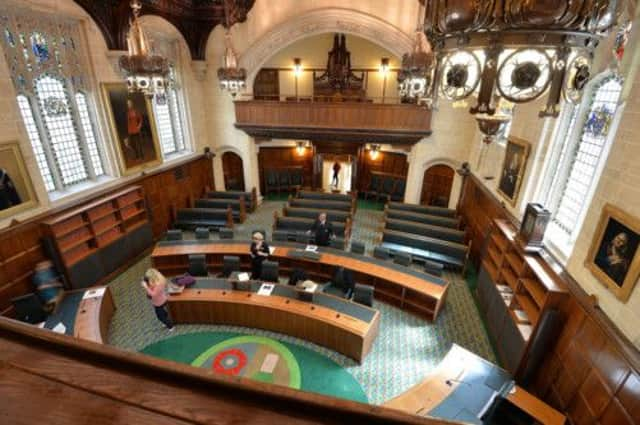Leaders: Salary secrecy is not serving the public


What councils are not for is to serve the interests of politicians and officials who lose sight of democracy and come to the view that what they believe is what is best for their local authority.
Sadly, the political leadership and the senior officials who work for them in South Lanarkshire Council have lost sight of these principles. How else can we explain the authority’s decision to fight a request for information on its salary scales for men and women, which has cost council taxpayers some £200,000 after the legal battle went to the highest court in the land?
Advertisement
Hide AdAdvertisement
Hide AdYesterday, the UK Supreme Court ruled that campaigner Mark Irvine’s freedom of information request to know how much the council paid male and female staff for similar graded work was legitimate and that South Lanarkshire’s claims that disclosure of such information would break data protection laws was spurious.
Responding to the ruling Mr Irvine said justice and common sense had finally prevailed leaving the council “looking rather silly and … with egg all over its face”.
The council and its political leadership had questions to answer over “this debacle and the terrible waste of public money involved”. Given the circumstances, it is impossible not to agree with Mr Irvine.
The council had at initially resisted his request to Scotland’s Information Commissioner as “vexatious,” a legal term meaning unreasonable or disproportionate, but changed its stance to cite data protection legislation, hardly a convincing about face.
Given this and the continued court fight against giving out the information, which the court confirmed would not involve disclosure details of individuals’ pay, if anyone has been vexatious it has been the council.
What legitimate reason did it have to act like this? Even if, as the council appeared to fear, Mr Irvine were to pass on the details to lawyers who might make money from equality claims from women, the council still had no right to refuse to publish the information. The suspicion must be that the data contains something that would embarrass the council. Perhaps it had refused to take seriously the deserved claims of women workers denied equal pay? Or perhaps the leadership just did not like transparency?
This stubborn refusal to adhere to the principles of openness and accountability has cost the taxpayer at least £168,000, if the commissioner’s costs are taken into account. As Mr Irvine says, the council leadership should hang their heads in shame. But they should also take to heart the principle of being public servants and governing for the people and the importance of doing the right thing.
Pope’s tone is to be welcomed
Pope Francis has already proved to be a remarkable Pontiff. Since taking over from the shy and aloof Benedict XVI, he has eschewed the trappings of office, living in modest accommodation, mixing with ordinary people, and refused the comfort and security of the “Pope-mobiles”. He has become the people’s Pope.
Advertisement
Hide AdAdvertisement
Hide AdYesterday, on his return from a very successful mission to Brazil, the Pope struck a very different tone to that of his predecessor, saying gay people should not be marginalised but integrated into society. Furthermore, the Pope said that the role of women in the Church cannot be limited “to altar girls or the president of a charity”.
It must be noted, however, that the Pope adhered to the current Catholic doctrine that homosexual acts were sinful and that women could not be ordained as priests. So while this change of tone is welcome – part of the problem for the Church, particularly in Scotland, has been its extreme language used on controversial issues – it is only a start.
If the Pope is in touch with ordinary Catholics he will realise many who hold their faith deeply and sincerely accept homosexuality, including sexual activity, as part of life and believe women could be as capable as spiritual leaders as men. Language and tone are important in religious leadership as they are in the political sphere.
However, as with politics, what matters more is what you do, not what you say. We hope that having changed his tone the Pope will, over time, ensure that his Church will move towards a more enlightened view on homosexuality and the role of women, one more in line with society as a whole.